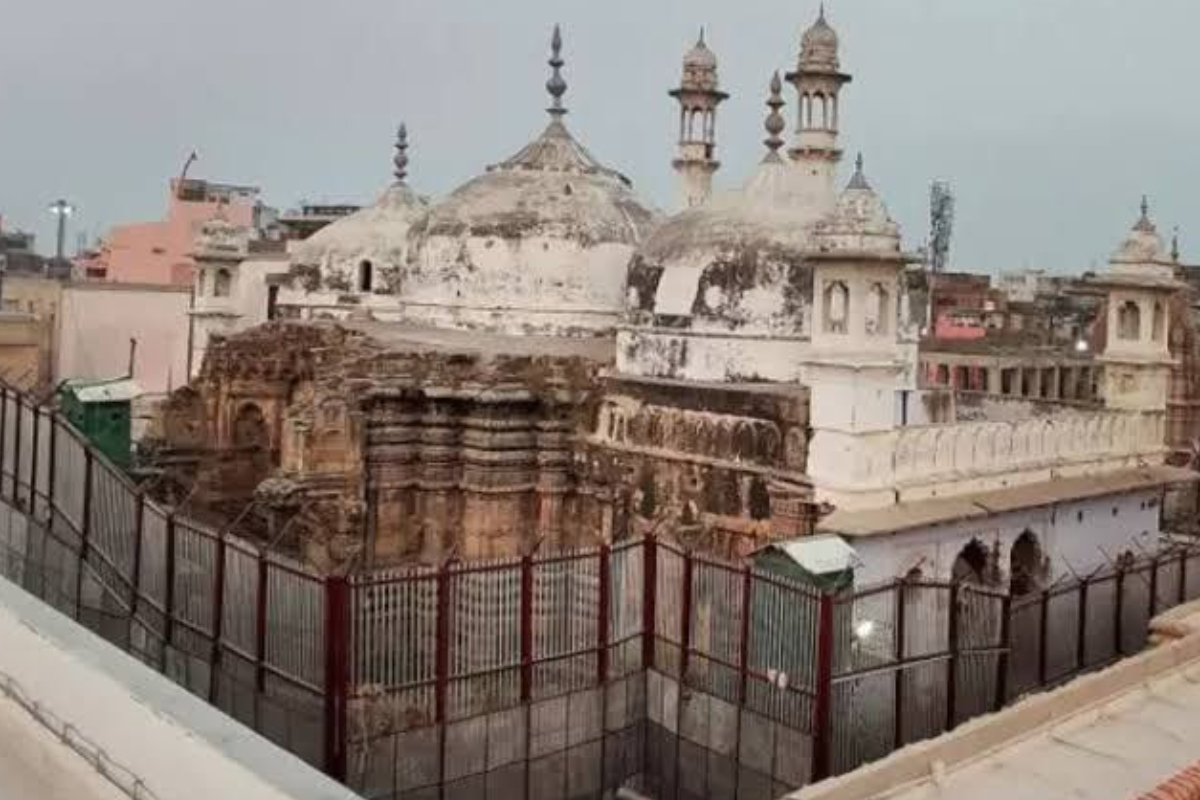NEW DELHI: In a significant development, the Allahabad High Court on Tuesday dismissed a batch of petitions filed by the Muslim side challenging the maintainability of a civil suit pending before a Varanasi court seeking the restoration of a temple at the site where the Gyanvapi mosque stands. The plaintiff from the Hindu side claimed that the Gyanvapi mosque is an integral part of the temple.
The Anjuman Intezamia Masjid Committee, overseeing the Gyanvapi mosque, the UP Sunni Central Waqf Board, and other parties had contested the suit’s maintainability, citing the 1991 Places of Worship Act. This legislation preserves the religious character of holy sites as they existed on the day of independence, except for the Ram Janmabhoomi-Babri Masjid site.
However, the Allahabad High Court ruled that the suit is of national importance and is maintainable, rejecting the argument that the Places of Religious Worship Act, 1991 bar it. The court emphasised that the mosque complex can only have either a Muslim or a Hindu character, but not a dual religious character.
Also Read: Parliament Winter Session: Half of TMC, DMK MPs suspended, Congress follows suit
Furthermore, the court directed the lower court to expedite the hearing on the suit, setting a deadline of six months, underscoring the urgency of the matter. This decision carries significant implications for the ongoing legal battle surrounding the sacred site.
The verdict comes a day after the Archaeological Survey of India (ASI) submitted a survey report in a sealed cover on the mosque complex in the district court, with the next hearing scheduled for December 21. The lower court may instruct the ASI to conduct additional surveys if deemed necessary for further investigation.
The Kashi Vishwanath temple, dedicated to Lord Shiva, stands as one of the holiest Hindu shrines on the western bank of the Ganges River in Varanasi. Adjacent to it, the Gyanvapi Mosque, constructed by Mughal Emperor Aurangzeb in the 17th century, has been at the centre of a longstanding legal dispute.
The dispute has witnessed multiple legal proceedings in various courts over the years, contributing to tensions and controversy surrounding the sacred site. The recent ruling by the Allahabad High Court adds a new chapter to the complex and emotionally charged legal battle, with further developments expected in the coming months.








